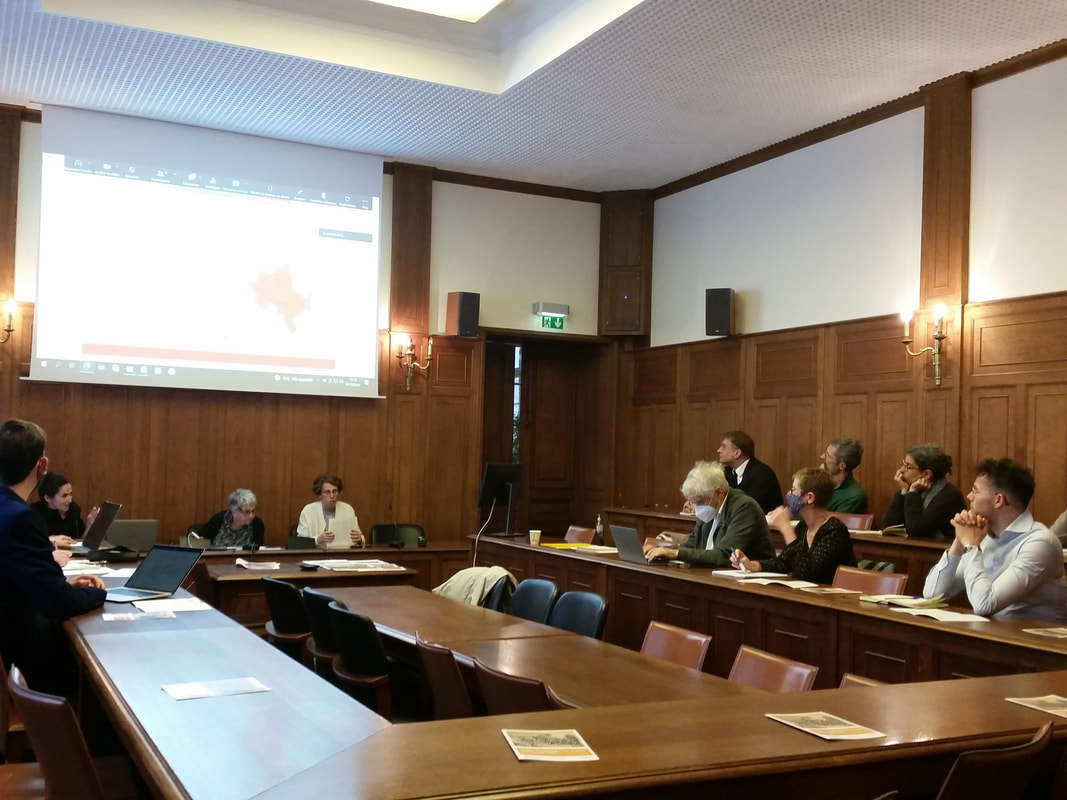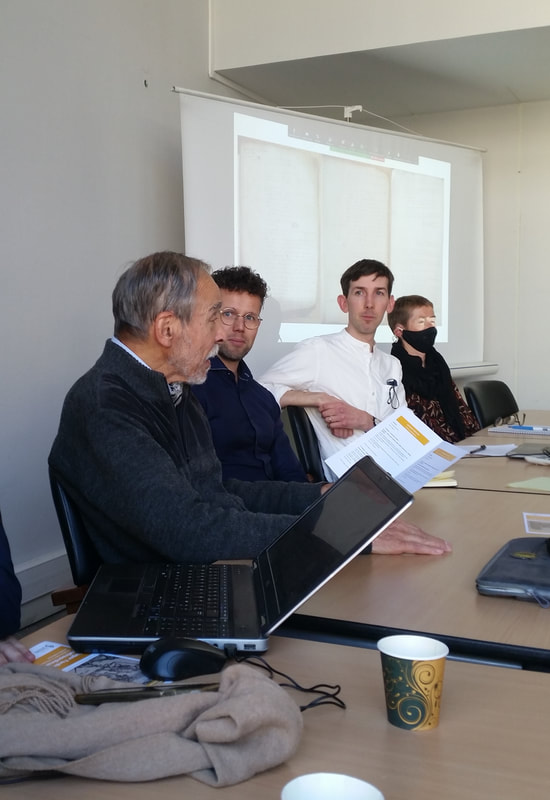|
On 6 and 7 October, medievalists and early modernists gathered in the beautiful salles of the Sorbonne in Paris to discuss an important topic: how did people in the past uphold the law in times of war and conflict? As the organizers François Foulonneau and Lucas Lehéricy stressed, historians have looked at military tribunals and court-martials, but for citizens it was even more important to be able to appeal to the law in times of war. This gave them a much-needed sense of security in uncertain times. The various speakers at the conference Juger l’ordinaire en temps extraordinaire all demonstrated that war never led to complete lawlessness. On the contrary, courts remained in function, people kept pleading their cases, and citizens collected evidence for future lawsuits. Sylvie Daubresse presenting on justice during the League. Photo: Rosanne Baars. The first day began with a panel on justice in times of crisis. What happened when a country suffers from internal divisions and civil war, such as during the Catholic League in sixteenth-century France? Sylvie Daubresse, for example, discussed court cases in Paris between 1589 and 1591. She showed that even in this period of crisis, common trials still took place. Diane Roussel spoke about the siege of Paris in 1590, and the notaries who kept doing their jobs. She also showed the irony of being held in prison in a besieged city: imprisoned à double tour. All speakers illustrated the continuing functioning of the law, even in those difficult times. Yet not all was fair in war, and even army commanders and soldiers were bound to the laws of war: excessive violence was severely punished. Valerie Toureille analysed the example of Aymerigot Marchès, who was persecuted for the excesses he had committed as an army commander during the Hundred Years’ War. The next day opened with a panel discussing the organization of legal institutions during times of war. Aurélien Peter showed that part of the Parisian court clerks went into exile to Tours during the troubles of the League, where they continued to work their cases. He also discussed the difficulty of reintegrating the returning clerks in the Parisian court once Henry IV had retaken the city, as they had to reconcile with their colleagues who had stayed. In the afternoon, David van der Linden presented the Building Peace project, discussing examples of transitional justice during the Wars of Religion, in particular efforts to punish the perpetrators of massacres. Tom Hamilton introduced Renée Chevalier, a noblewoman determined to get justice for war crimes committed during the Wars of Religion. Robert Descimon, finally, offered his reflections on these papers. Robert Descimon commenting on the papers of David van der Linden and Tom Hamilton. Photo: Rosanne Baars. The conference demonstrated that even in times of open warfare, life continues. Considered as la voix de justice, the courts needed to remain functioning at all times, something that people in pre-modern times were well aware of. As such, Juger l’ordinaire en temps extraordinaire was a successful and well-organized conference, which also provided great inspiration for the Building Peace project. As our team continues the research, we will explore to what extent Catholics and Protestants also clamored for justice once the Wars of Religion had ended. – by Rosanne Baars
0 Comments
|
Blog
Welcome to our blog – stay tuned for regular updates on our project. Archives
February 2024
Categories |


 RSS Feed
RSS Feed
